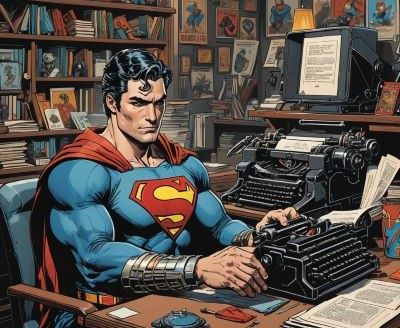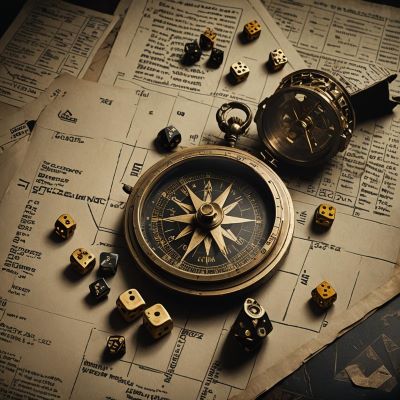At first glance, Dungeons & Dragons (D&D) may seem like just a game about fighting dragons, looting treasure, and telling fantastical stories. But can Dungeons & Dragons make me better at my job? Beyond the dice rolls and dungeons lies a useful toolkit for personal and professional growth. If you follow this blog you know I’m a massive proponent of the skills that playing D&D hones. Most of which are critical in the modern workplace, from communication and leadership to problem-solving and emotional intelligence.
If you’re looking to level up at work, here’s how sitting down for a session of D&D can make you a better employee, leader, and teammate.
Improved Communication Skills
In D&D, players must work together to succeed. Whether you’re convincing the rest of your party to take a risky path or role-playing a persuasive negotiation with a merchant, communication is key.
The Job Connection:
- Clear Articulation: Explaining complex ideas, like a strategy to defeat an ogre or a proposal for a new work initiative, requires clarity and confidence.
- Active Listening: Success in D&D depends on paying attention to what others say—an essential skill for effective collaboration.
- Empathy in Messaging: Playing characters with diverse backgrounds helps you learn to tailor your words to different audiences.
Imagine how these skills could translate to leading a team meeting, pitching a new idea, or resolving workplace misunderstandings.
Teamwork and Collaboration
D&D is not a solo game. Success depends on a group of individuals working together, each bringing their unique skills to the table. A rogue may sneak past traps, a wizard might solve an arcane puzzle, and a fighter can hold the line in battle.
The Job Connection:
- Leveraging Strengths: Just like a party in D&D, workplace teams thrive when individuals understand and utilize their unique talents.
- Cooperation Under Pressure: Whether it’s a battle against a dragon or a tight project deadline, D&D teaches you how to stay composed and work together during high-stress situations.
- Building Trust: When you rely on your teammates to save you from a goblin ambush, you learn to trust them—an invaluable skill in any job.
In short, D&D reinforces the importance of working as a team to achieve shared goals.

Creative Problem-Solving
D&D is a game of choices, and there’s rarely one “right” answer. Players constantly face unique challenges, from deciphering cryptic prophecies to outsmarting enemy generals. Success often requires creative thinking.
The Job Connection:
- Innovation: Brainstorming solutions to complex in-game problems hones your ability to generate innovative ideas at work.
- Flexibility: When your first plan fails (and it will), D&D teaches you to adapt and pivot, a skill highly valued in dynamic work environments.
- Decision-Making: The consequences of in-game choices train you to analyze options and make informed decisions under pressure.
If you’ve ever convinced a dragon to become your ally instead of your enemy, you know how valuable creative thinking can be.
Leadership Development
Playing D&D often involves taking on leadership roles, whether as the Dungeon Master (DM) guiding the story or as a player rallying the party. Leadership in D&D mirrors leadership in the workplace: it’s about empowering others, making decisions, and staying composed under pressure.
The Job Connection:
- Inspiring Others: A great leader can motivate their team, much like a paladin inspires their party to keep fighting.
- Strategic Thinking: Planning a daring heist or defending a fortress requires the same long-term thinking that leaders use to guide projects.
- Delegation: D&D teaches you to rely on your team—after all, you can’t cast every spell or swing every sword.
If you want to sharpen your leadership skills, few activities are as effective as stepping into the role of DM.
Emotional Intelligence and Resilience
D&D creates a safe space to explore emotions and practice resilience. Losing a beloved character or failing a critical quest can be tough, but these experiences teach you how to process setbacks and bounce back.
The Job Connection:
- Resilience: Facing challenges in D&D helps you build the grit to handle workplace obstacles with confidence.
- Empathy: Role-playing as different characters fosters a deeper understanding of others’ perspectives, enhancing interpersonal relationships.
- Conflict Resolution: Managing in-game disputes translates to resolving real-world workplace conflicts with tact and diplomacy.
The emotional intelligence you gain from D&D can make you a more thoughtful and adaptable colleague.
Time Management and Organization
D&D requires players to manage their resources (like spell slots and gold), plan their actions, and track multiple storylines. These skills are directly transferable to the workplace.
The Job Connection:
- Prioritization: Deciding whether to use your last healing potion now or save it for later mirrors how you allocate time and resources at work.
- Project Management: Keeping track of quests, maps, and NPCs teaches you how to stay organized and on top of multiple tasks.
- Deadlines: Scheduling regular game sessions with a busy group of people is great practice for managing competing schedules.
Mastering these skills can make you more efficient and reliable at work.
Dungeons & Dragons Can Make Me Better at My Job!
As you may have guessed by now, I believe that Dungeons & Dragons isn’t just a game—it’s a training ground for professional success. By playing the game you’re actually enhancing your communication, teamwork, creativity, leadership, emotional intelligence, and organizational skills. Without even realizing it, D&D prepares you to tackle workplace challenges with confidence.
So, the next time someone raises an eyebrow at your dice bag or asks why you spend hours playing a “nerdy” game, tell them you’re investing in your career. Who knows? Maybe they’ll join your party and level up their professional game too.





